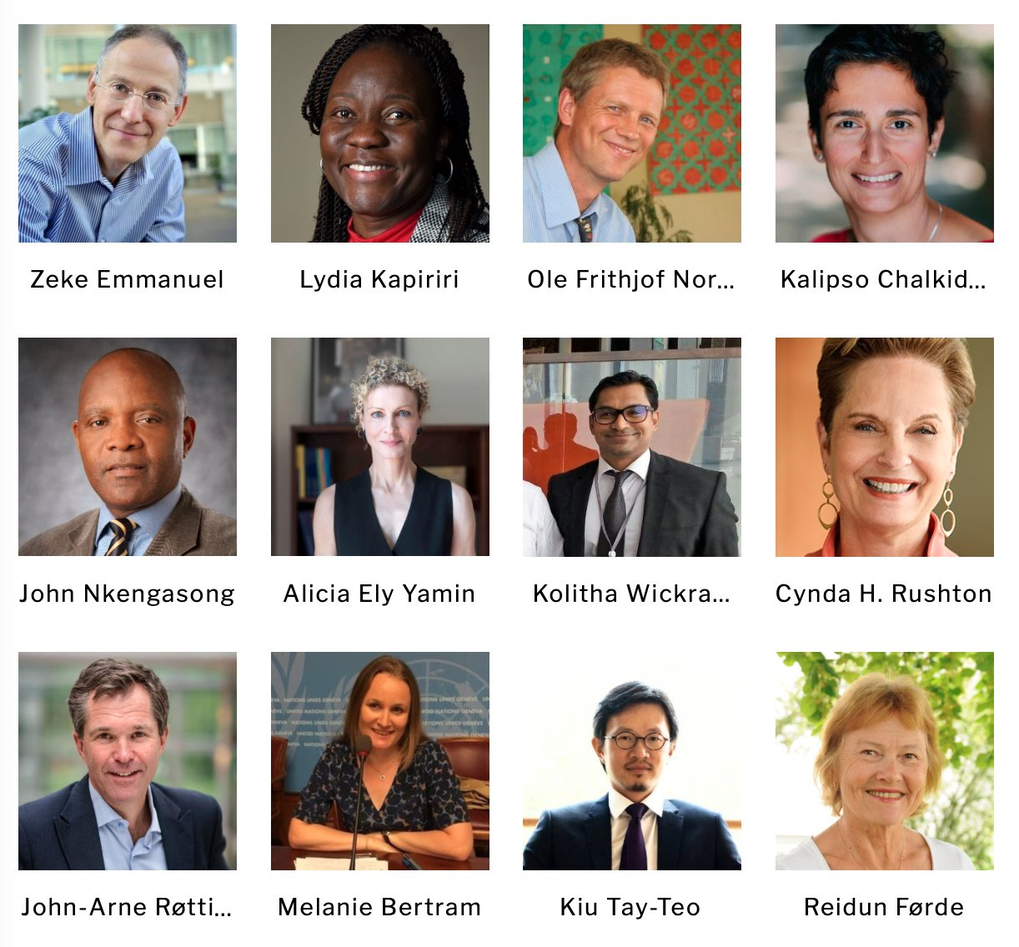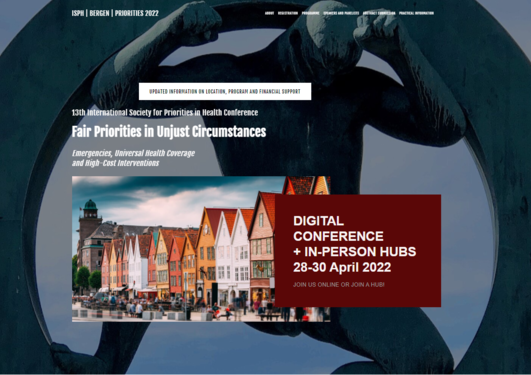13th International Society for Priorities in Health Conference
Leading experts gather to discuss global health priorities. Do not miss the ISPH Conference from 28-30 April.

Main content
The biannual ISPH conference is fast approaching. For the first time since the network was formed in 1996, Bergen Centre for Ethics and Priority Setting (BCEPS) at the Department of Global Health and Primary Care is hosting the conference.
We spoke with the Chair of the conference's organising committee, Ingrid Miljeteig, and the President of the International Society for Priorities in Health (ISPH), Kjell Arne Johansson, and asked them about what we can expect to see in Bergen from 28-30 April this year.
"This is exciting. We are entering unknown terrain here, says Miljeteig. This year's ISPH conference will not be a regular pre-pandemic conference where everybody travels to one hosting site - nor a hybrid solution, which has become the new normal in the last two years. BCEPS has chosen a special variant - streaming and local hubs".
"All lectures will be streamed. In addition, we have ten so-called "hubs" in various locations around the world, where there will be the opportunity to follow several lectures in-person. The hubs will also be excellent arenas for making contact with other researchers and building networks", Miljeteig explains.
Big names
Among the speakers we find well-known international researchers Zeke Emmanuel, Ayoade Alakija, John Nkengasong and Alicia Yamin as well as Norwegian names such as Camilla Stoltenberg, Bård Vegar Solhjell, John-Arne Røttingen, Ole Frithjof Norheim, Kjell Arne Johansson and many more. But before we go further; what exactly is ISPH and what can we expect from this year's conference?
"ISPH stands for International Society for Priorities in Health and is an international network that has existed for almost thirty years. It consists of leading international researchers in health priorities, and every other year a conference is organised with participants from all over the world".
Kjell Arne Johansson at BCEPS should know what he is talking about. Since 2018, he has been President of this network. His role is to lead the daily operations and ensure that the conference is held properly. This year's innovation is not the result of a sudden whim, but part of a conscious strategy to reduce carbon footprints.
"We see this as a future-oriented conference where we have a digital solution at the same time as we have local hubs that can be attended in person. In this way, we reduce the carbon emissions caused by travel, without compromising the opportunity to participate in debates and secure new exciting contacts. The conference was supposed to be held in 2020 but was postponed due to the corona situation. We have worked determinedly to increase participation from low-income countries. This has always been a challenge, but with generous support from our partners, digital participation is now free for everyone".
Collaborating partners in this year's conference include the Bill and Melinda Gates Foundation, NORAD, Trond Mohn Foundation, Helse Bergen, Africa CDC and several others.
"Everyone who registers gets access to a portal where they can participate in all the lectures and discussions. In addition, they can watch the recorded lectures afterwards. This is important since many lectures are timetabled in parallel", says Miljeteig. Although you can follow the conference for free digitally, the hubs will be a natural gathering place for everyone working with the topics addressed at the conference.
Bergen Hub and focus on COVID-19
The House of Literature in Bergen will house the Bergen Hub during the conference. There will be speakers present both from the Bergen region and elsewhere. In total, the participants at the Bergen Hub will be able to follow seven expert panels and 24 organised sessions with interesting debates. In addition, there will be abstract discussions and "Meet the Expert" sessions in the digital portal.
In total, there will be over forty webinars spread over three days. An entire day will be devoted to focusing on universal health services, explains Kjell Arne Johansson. Naturally, COVID-19 will be a central part of the conference.
"ISPH was among the first to arrange a webinar focusing on prioritising intensive care units in hospitals. At the time we were still at the stage where we knew little about the virus and what it really was. Just before Christmas 2020, we hosted a very important webinar with MIT Harvard and the University of Pennsylvania focusing on vaccine prioritisation. This focus will be followed up at the upcoming conference".
Johansson emphasises that the network consists not only of researchers, but also of those who facilitate health priorities around the world. In addition, we also find clinicians in the network. Thus, ISPH consists of those who research health priorities, those who make the decisions, and those who are directly affected by the results.
The title of the conference is "Fair Priorities in Unjust Circumstances". Miljeteig believes this year's topics are more relevant than ever.
"The conference is now more focused on global health challenges. I think the pandemic has shown us in a brutal way that everything is connected, and that we in our part of the world have begun to open our eyes to the scarcity of vital resources in the health care system. We hope that the conference can be a meeting place for everyone involved in the processes around health priorities. It is important that we create an arena where everyone can meet so that together we can achieve as fair a distribution of resources as possible".
This year's event has its own conference website.
Digital registration is free and is open until 27 April.

